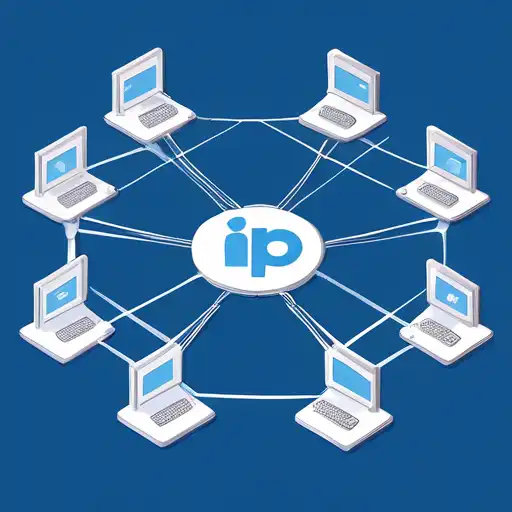Introduction to IP Addresses
In the vast world of networking, understanding IP addresses is crucial for anyone looking to grasp how devices communicate over the internet. An IP (Internet Protocol) address is a unique identifier assigned to each device connected to a network, enabling them to send and receive data. This article will explore the basics of IP addresses, their types, and their significance in networking.
What is an IP Address?
An IP address is a numerical label assigned to each device participating in a computer network that uses the Internet Protocol for communication. It serves two main functions: identifying the host or network interface and providing the location of the host in the network.
Types of IP Addresses
There are two primary versions of IP addresses in use today: IPv4 and IPv6.
- IPv4: The most widely used version, consisting of four sets of numbers separated by dots (e.g., 192.168.1.1).
- IPv6: Developed to deal with the exhaustion of IPv4 addresses, it uses eight groups of four hexadecimal digits (e.g., 2001:0db8:85a3:0000:0000:8a2e:0370:7334).
How IP Addresses Work
IP addresses are the cornerstone of internet communication. When you type a website address into your browser, a Domain Name System (DNS) server translates the domain name into an IP address, allowing your device to connect to the website's server. This process is seamless and happens in milliseconds.
Static vs. Dynamic IP Addresses
IP addresses can be either static or dynamic. A static IP address remains constant, making it ideal for hosting websites or services. On the other hand, a dynamic IP address is assigned by a DHCP server and can change over time, which is common for residential internet connections.
The Importance of IP Addresses in Networking
Without IP addresses, devices wouldn't be able to communicate over the internet. They ensure that data sent from one device reaches the correct destination. Understanding IP addresses is essential for setting up networks, troubleshooting connectivity issues, and securing online communications.
Securing Your IP Address
While IP addresses are necessary for internet communication, they can also be exploited by malicious actors. Using a Virtual Private Network (VPN) can help mask your IP address, enhancing your online privacy and security.
Conclusion
IP addresses are fundamental to the operation of the internet and networking. By understanding the basics of IP addresses, including their types and how they work, you can better navigate the digital world, whether you're setting up a home network or exploring the vast possibilities of the internet.
For more insights into networking and technology, explore our networking guides and stay updated with the latest trends and tips.
